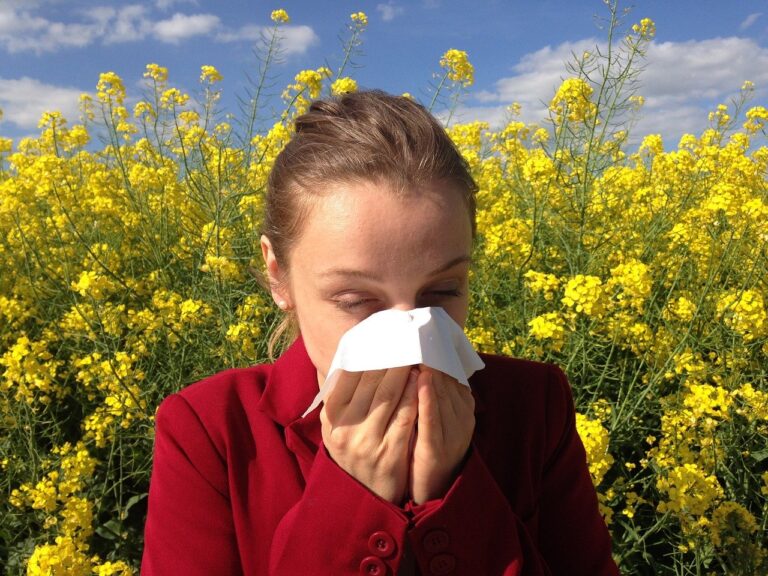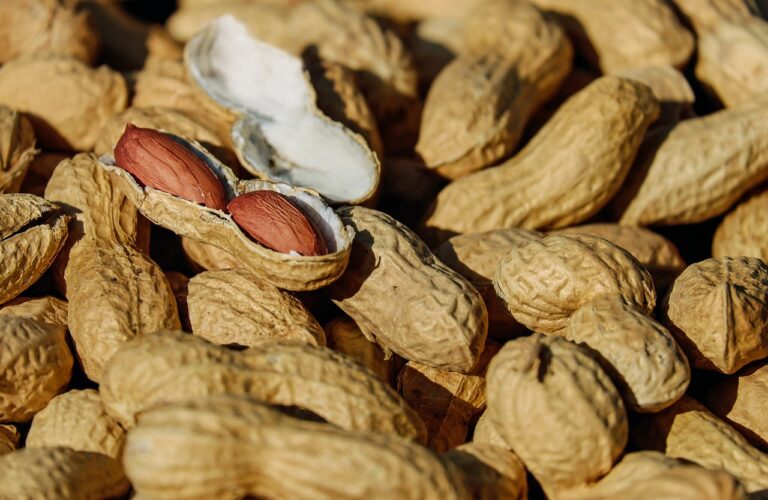Allergy Therapeutics (LON:AGY), the fully integrated specialty pharmaceutical company specialising in allergy vaccines, today announced publication of positive preclinical results of its peanut allergy vaccine candidate in The Journal of Allergy and Clinical Immunology (JACI).
The study, which introduces the principles of vaccination into the allergy field, used a peanut allergy mouse model to demonstrate that the novel virus like particle (VLP) platform used in the vaccine candidate could offer an effective way to treat peanut allergies and prevent anaphylaxis. It provides the proof of concept for the generation of sustained immunity and protection through vaccination. The study illustrated that a single injection protected against systemic anaphylaxis, as demonstrated via subsequent in vivo challenge, skin prick testing and oral challenge.
There are currently no approved immunotherapies for the treatment of, or to cure, patients suffering from peanut allergy, which remains a frequent cause of anaphylactic reactions among food allergies. Prevalence of peanut allergy in Western countries ranges from 1.4-3% of children1, with UK figures estimating around 2% of children in the UK are affected2. In the US, peanut allergy affects an estimated 1.2% of the overall US population3 and 1 in 4 children with a peanut allergy require a hospital visit each year4.
In this study mice were immunised with one of three vaccines containing either a mixture of allergens found in whole extract of roasted peanut or with just one single, purified peanut allergen (“Ara h 1” or “Ara h 2”). Regardless of which vaccine was used, immunisation strongly reduced systemic and local allergic symptoms in vaccinated subjects and protected against anaphylaxis upon subsequent challenge with a whole peanut allergen mixture. The fact that one injection against a single allergen was sufficient to induce protection against a whole peanut allergen mixture has never been described before and is described in the JACI paper as “striking and could be applied in different relevant allergies”. In addition, the vaccine proved to be hypo-allergenic as previously described5, which in peanut allergy is a vital characteristic to avoid anaphylactic reactions upon dosing and to increase compliance.
Allergy Therapeutics’ wholly-owned, subcutaneous, recombinant vaccine candidate, uses a formulation incorporating novel VLP-based technology, which enhances the body’s immune response by making the peanut allergen resemble an invading virus. The engineered, plant-based cucumber mosaic virus (CuMV) used in the vaccine is not able to replicate or to infect humans and so provides a platform to induce protective antibodies in a way more akin to traditional vaccination rather than current allergen-specific immunotherapy approaches such as desensitisation via transdermal patches or oral administration.
Professor Martin F. Bachmann, study investigator from The University of Bern, Switzerland and The Jenner Institute, University of Oxford, UK, said: “The impact of peanut allergy on patients, their families and health systems is significant with prevalence on the rise. While work to develop peanut allergy immunotherapies has been the focus of researchers’ attention for some time, these potential immunotherapies often require repeated and long-lasting exposure transdermally or orally, which can limit patient adherence and have been associated with dangerous systemic allergic reactions. The availability of a safe and effective short-course vaccine that provides long-term protection and induces a long-lasting protective immune response remains the ultimate goal for researchers in this field. This study indicates a paradigm shift by addressing peanut allergy via a vaccination concept instead of classic desensitisation and provides a strong proof of concept for such a vaccine. The important next step will be to confirm the effects seen here in patient trials.”
With manufacturing scale up of the product now underway and following agreement with several regulatory authorities on the clinical trial design a first-in-human phase I clinical trial of the candidate vaccine is due to begin.
The scientific publication in JACI, the most frequently cited allergy and immunology journal in the field, is titled Vaccine against peanut allergy based on engineered Virus-Like-Particles displaying single major peanut allergens and is available online at www.jacionline.org
References
1. Nwaru BI, Hickstein L, Panesar SS, Muraro A, Werfel T, Cardona V, et al. The epidemiology of food allergy in Europe: a systematic review and meta-analysis. Allergy. 2014. 1;69(1):62-75. Available from: http://doi.wiley.com/10.1111/all.12305
2. Allergy UK, Peanut Allergy Factsheet, https://www.allergyuk.org/information-and-advice/conditions-and-symptoms/778-peanut-allergy
4. Gupta RS, Warren CM, Smith BM, et al. The Public Health Impact of Parent-Reported Childhood Food Allergies in the United States. Pediatrics. 2018;142(6):e20181235. Available from: https://www.ncbi.nlm.nih.gov/pubmed/30455345
5. Engeroff P, Caviezel F, Storni F, Thoms F, Vogel M, Bachmann MF. Allergens displayed on virus-like particles are highly immunogenic but fail to activate human mast cells. Allergy. 2017;00:1-9. https://doi.org/10.1111/all.13268
Manuel Llobet, Chief Executive Officer of Allergy Therapeutics, commented: “The development of an effective and safe peanut allergy vaccine would be significant, offering huge and life-changing benefits to sufferers affected by this condition. The science behind allergy vaccination is incredibly difficult given the complexity of our immune systems and at Allergy Therapeutics we have been working on our peanut allergy vaccine for over three years. The results from this study are very promising and we’re excited to be progressing the vaccine into its first clinical trial in patients this summer.”








































